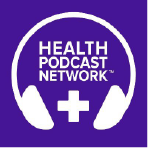Work-related stress causes 120,000 deaths and results in $190 billion in health care costs yearly, and U.S. businesses lose up to $300 billion yearly as a result.
Stress, depression, and anxiety are, unfortunately, part of the modern human condition.
Busy and ambitious health care professionals especially are burning out at record rates while experiencing severe mental trauma during this pandemic. On Patriot Day, Medscape published a study showing that 64 percent of U.S. physicians reported more intense burnout since the pandemic.
On top of the second wave that just hit us in the summer, we might have a third wave as we are entering the fall and winter seasons. The stress related to COVID-19 will linger on.
Health care workers are put in tough spots making impossible decisions and work under extreme pressure.
A study published in month by Boston University showed that the depression rate has tripled since the start of the COVID-19 pandemic. Many people have also developed a condition called moral injuries.
On the other hand, when people are supported appropriately, they can also develop psychological growth through the same experience.
As a clinician myself, I have been there.
Let me take you back a few years. It was barely 8 a.m. I was exhausted, having slept maybe three hours the night before, because I was carrying a beeper (remember those?) while I had a fever of 101 degrees, my body felt weak, and my hands were cramping up. That wouldn’t have been so bad, except for the fact that those hands were currently inside my patient’s chest during his open-heart surgery. I knew I wouldn’t have a break for at least another five hours.
One of the nurses took pity on me and slipped some Dayquil under my mask to keep me going. I woke up the next day covered in sweat and barely able to move. I called my boss to take a sick day. He responded, “Just don’t make a habit out of this.”
I was so frustrated, feeling so unappreciated. We value our patients with compassion and respect, but in the health care industry, we often do not treat our teammates and ourselves with those same values. We put ourselves last …
My story is not unique; in fact, this scenario will sound sadly familiar to you, the hardworking health care professional. You are talented and ambitious, committed to your patients and their organizations. But it comes at a cost to you.
Am I the only one who rarely makes it home on time for dinner, misses family, holidays, and birthdays to extra shifts? Between our never-ending cycle of work, eating, and sleep, there’s little time for exercise, hobbies, or a chance to have some downtime on the couch. It’s not a sustainable way to live.
When I was regularly working 80+ hours a week and was on call almost every day, I had to admit that something needed to change. I stepped back and did significant research to find a strategy to help coach myself out of constant exhaustion and put myself first.
Today, I’m a peak performance speaker who helps other ambitious and overworked health care professionals to find their voice, feel more confident as influential leaders, and fall back in love with their careers.
I believe with the right system, ambitious professionals can be both: powerhouses in health care and passionate people in life. You just have to say no to almost everything, so you can say “heck yes” to the only things that matter!
Let me share with you the three-step process that has helped me to fall back in love with my career:
Step 1: Redefine your motivations
When we are only creating means goals, like earning another raise or buying a beautiful house, we are hoping that once we make it to the next mark, then we will be happy. Instead, we need to know our end goals. Ask yourself now, what is an ideal lifestyle you wish to have and write that answer down. Who will be there with you at the end of your journey, and how good would you feel then? Once we have an end goal, then we can reverse engineer our path and not waste time doing many things aimlessly.
Step 2: Restore your mental immunity
When you can build mental immunity properly, you can conquer any roadblocks in life. To start, say one positive thing about yourself out loud every morning in front of a mirror. You might say, “Hey, Sabrina isn’t that a little vain?” I’m telling you, no. You are just affirming your own strength so you can begin your day on a good note.
Step 3: Reboot your efficiency by recharging your energy
Taking care of yourself first will allow you to give the best of yourself, not just what is left of you. If you can apply the concept of micro mental vacations, you will never need to grab another energy drink just to get yourself through the day. You might think, “I work out, eat right, and travel regularly. I know how to take care of myself.” OK, but are you 10/10 on the energy scale from the moment you woke up to the time you go to bed? If not, then why not learn some simple exercises that calm your busy mind, bring back focus, and increase alertness?
I used to feel that I’m expendable, but now I positioned myself in a way that my organization cannot afford to lose me.
I used to miss my workout classes; now, I can squat 225 lbs. Which means I could put Lebron James across my shoulders and squat him.
I used to always feel exhausted; now, I have found ways to reboot my energy on demand and teach others to do the same.
Now is your time, and together, we can create a life where you can be both powerful and passionate.
Sabrina Runbeck is a cardiothoracic surgery physician assistant.
As Featured On






Grab your weekly Peak Performance Guide for Healthcare Private Practice Owners
© 2022 Sabrina Runbeck LLC. All rights reserved.
